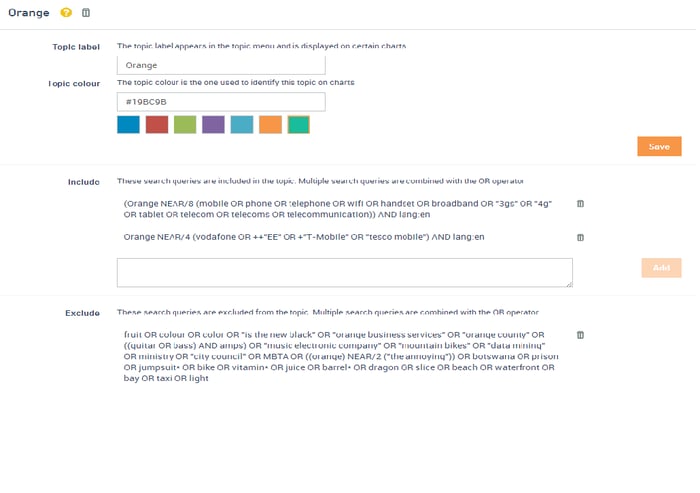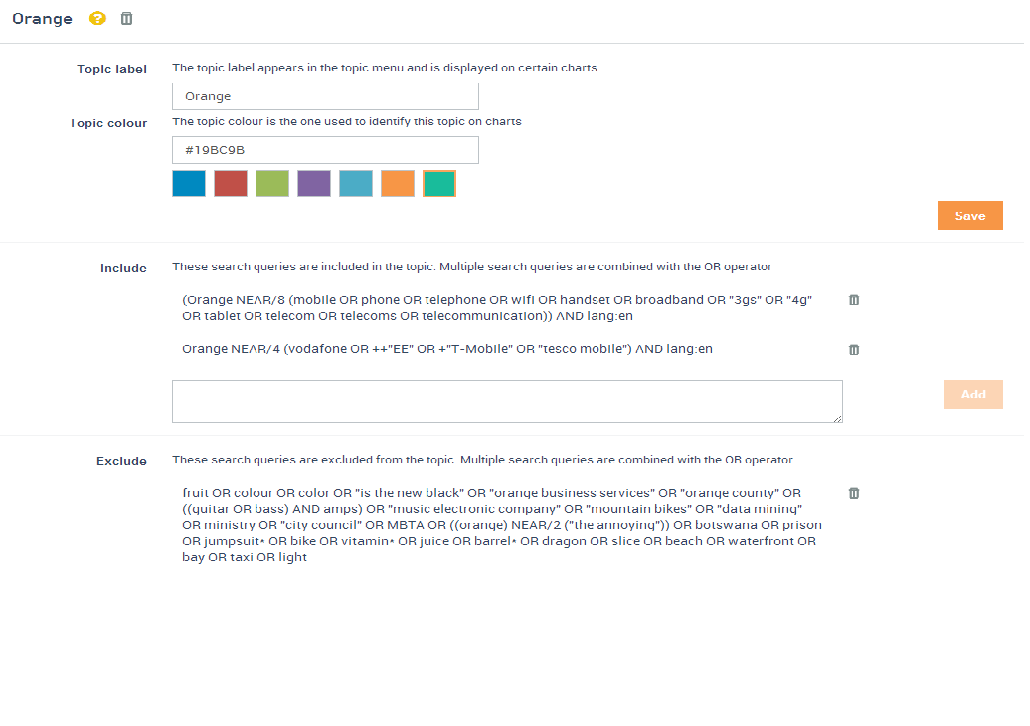Every day, so much information is posted on the Internet that it can be hard to keep up – especially if you are new to social media monitoring. To cut through the noise and find the results that are relevant for you and your brand, you need to ask the right questions. That’s where Talkwalker can help you. We will show you how to set up the right search queries and get the best results for your social media analysis.
Define your sources
First, you need to be clear on what you are looking for. This includes removing as much irrelevant buzz as possible. But you still need to make sure you know what is being said about you and your brand online. Therefore you should define your sources, e.g. which channels you want to monitor, or even drill down to the exact media you would like to monitor and analyze. For some brands, especially visually oriented ones like makeup companies, Instagram could be an important platform while it offers no benefits for others. For some other brands, a select number of forums is highly relevant for in-depth qualitative analysis.
Define your search terms
Choosing the right search terms is essential for a successful monitoring. By using the right terms, you can be sure to get not only extensive results, but also the ones that matter the most. Your search should include two types of search terms: simple ones your customers are likely to use, and more complex ones that are commonly used within your industry. By combining the two, you are able to see what your customers and prospects are saying about you while also being aware of the conversation surrounding your competitors.
Refine your search
If your search terms are too broad, it can be hard to keep up with the results. The solution is to refine your search. A few simple tricks can help you reducing results to those that are relevant for your brand.
1. Boolean Operators
Boolean Operators enable you to combine search terms or exclude the ones that are not relevant for your brand. The most common ones are AND, OR and AND NOT. AND combines your search terms, so you only the get results where all of your keywords are mentioned. OR will give you all results with any of your keywords mentioned. AND NOT includes the results where one of the search terms is mentioned, but not the other.
An example: for mobile provider Orange, it would be nearly impossible to monitor all mentions of the word “orange” and find everything related to their brand. To make sure they only receive relevant results, a query like “Orange AND mobile” is a good starting point. Using “Orange AND NOT juice” will then remove all results that mention orange juice. And a search for “Orange OR mobile” will return all results that include “orange” or “mobile”.
One thing to keep in mind when you use Boolean Operators: they need to be capitalized and do not respect the order of your search terms. The keywords may appear anywhere in a text. So if you combine two keywords, one of which appears at the beginning and the other one at the end of an article, the article will still be included in your results.
2. Exact character strings
If you have a very specific term or brand name and want your results to reflect only that, you can limit search results by using quotation marks in your query. If you do so, you will get the results in the order of your search query. If, for example, BMW was looking for results on one of its BMW 1 series, the query should include “BMW 1 Series”.
3. Combining your searches
If you have several search terms and want to apply the same operator for all of them, the easiest way to go about it is by using brackets. Going back to the example of Orange, there is a multitude of search terms that are likely to appear next to “orange”, but are not relevant for the mobile provider. A possible exclusion list for the search term “orange” could look like this.

There are many additional and useful commands and operators to optimize your search query. Check out our comprehensive guide on the Talkwalker Academy to see how you can get the best results from your Talkwalker.



